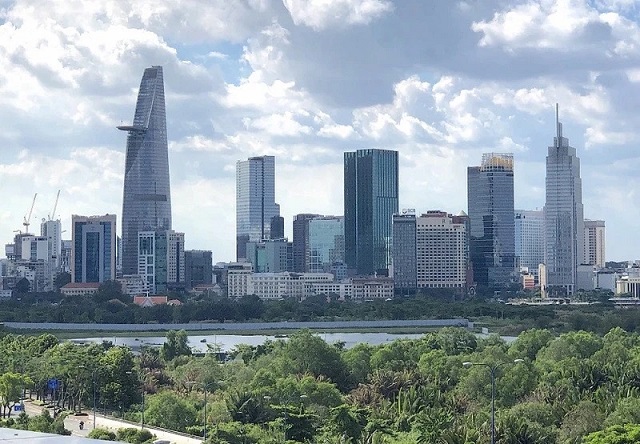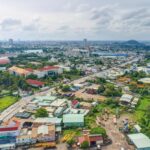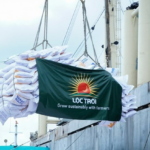The Ministry of Justice has recently announced the review and approval of the draft resolution of the National Assembly, allowing the Housing Law of 2023 to take effect from July 1, 2024, six months earlier than the law’s original stipulation.
Conditions for Overseas Vietnamese to Own Property in Vietnam
The Housing Law of 2023 introduces new provisions, including the property ownership rights of Overseas Vietnamese. Specifically, point b, clause 1, Article 161 of the 2023 Housing Law stipulates that for Overseas Vietnamese to engage in property transactions in Vietnam, they must be eligible for property ownership in the country and are not required to have a registered residence in the location of the property being transacted.
Additionally, Article 8 of the 2023 Housing Law states that the determination of Overseas Vietnamese status will adhere to the law on citizenship. The condition for property ownership in Vietnam is that they must be permitted to enter the country.
Regarding the modalities, the 2023 Housing Law does not specify how Overseas Vietnamese can own property in Vietnam, unlike the 2014 Housing Law. Instead, it refers to the Law on Land, which stipulates that Overseas Vietnamese who are permitted to enter Vietnam can own property associated with the right to use land in accordance with the Law on Land.
 Illustrative image. Source: QH
|
According to ThS Ngo Gia Hoang from Ho Chi Minh City University of Law, Overseas Vietnamese are Vietnamese citizens and Vietnamese-origin individuals residing and living permanently abroad (according to clause 3, Article 3 of the Law on Vietnamese Nationality of 2008, amended in 2014). Therefore, Overseas Vietnamese refers to those who have permanently settled abroad. They may or may not hold Vietnamese citizenship but identify as Vietnamese by origin. These individuals only need to be “permitted to enter Vietnam” to be eligible for property ownership in the country.
|
Housing Ownership Needs of Overseas Vietnamese According to the Ho Chi Minh City Real Estate Association (HREC), of the over 10 million Overseas Vietnamese across 200 countries, approximately 3.8 million have reached retirement age. A significant number of them possess assets and desire to return to Vietnam to reside. Hence, the demand for property transactions among this group is expected to increase in the coming time. The Land Law of 2024, which expands the possibility of land-use rights for Overseas Vietnamese who still hold Vietnamese citizenship, will contribute to an influx of remittances into Vietnam, particularly in the real estate sector. ThS NGO GIA HOANG, Ho Chi Minh City University of Law |
Regarding the modalities of property ownership, the 2023 Housing Law refers to the Law on Land. ThS Hoang believes that this ensures unity within the legal system and demonstrates the legislative principle that the Housing Law should focus solely on housing-related matters, including housing ownership by organizations and individuals. On the other hand, issues pertaining to land use and land-use rights are governed by the Law on Land.
Land Access Rights for Overseas Vietnamese with Vietnamese Citizenship
Clause 3, Article 4 of the 2024 Land Law stipulates that land users include individuals in the country and Overseas Vietnamese who are Vietnamese citizens. Therefore, Overseas Vietnamese retaining Vietnamese citizenship will have the same rights as domestic individuals, including the right to access land.
Specifically, individuals (including Overseas Vietnamese who are Vietnamese citizens) can obtain land-use rights through transfer, donation, or inheritance (Article 28 of the 2024 Land Law). This is a new provision in the 2024 Land Law compared to its 2013 version. According to the 2013 Land Law, in cases where there is a need for land for residential purposes, all Overseas Vietnamese, regardless of their citizenship status, could only obtain land-use rights through transactions involving houses attached to residential land use rights or by receiving land-use rights in real estate development projects (point d, clause 1, Article 169 of the 2013 Land Law).
Thus, the 2024 Land Law has expanded land access rights for Overseas Vietnamese who still hold Vietnamese citizenship. They will no longer face restrictions on land types or areas where they can acquire land through transactions, just like domestic individuals. This policy not only fulfills the aspirations of Overseas Vietnamese who wish to maintain ties with their homeland but also contributes to attracting investment to Vietnam. It also aligns with the Party and State’s policy of treating all Vietnamese citizens equally, regardless of their place of residence.
What’s New for Vietnamese-Origin Individuals?
For Vietnamese-origin individuals residing abroad who no longer hold Vietnamese citizenship, the 2024 Land Law maintains the current discriminatory policies. Public Notary Nguyen Thi My Nuong from the Public Notary Office in Dong Nai province provided a more detailed analysis. According to point h, clause 1, Article 28 of the 2024 Land Law, Vietnamese-origin individuals can own property through various modalities such as purchasing, lease-purchasing houses attached to land-use rights, receiving land-use rights in real estate development projects, inheriting land-use rights, and other types of land on the same land lot with a house, as stipulated by civil law. They can also receive donated houses attached to land-use rights from inheritors, as specified by civil law.
However, regarding donated houses attached to land-use rights from inheritors, the 2024 Land Law restricts the donors to “inheritors.” This is a more limiting provision compared to the current law, as the 2013 Land Law only stipulates “inheritance or donation of houses attached to land-use rights” without restricting the donors (point d, clause 1, Article 169).
|
How Can Vietnamese-Origin Individuals Inherit Land-Use Rights? The type of land that Vietnamese-origin individuals residing abroad can inherit must be land-use rights for residential purposes and other types of land on the same land lot with a house. If they do not fall under the category of individuals eligible for owning houses attached to land-use rights in Vietnam, they can only receive the monetary value of the inherited land-use rights. The state does not issue land-use certificates to these individuals. Instead, they can only receive the value of the inherited land-use rights through land transfers. In such cases, the inheritor can be named as the transferor or donor in the contract. If the land-use rights have not been transferred or donated, the inheritor or their authorized representative must submit documents regarding the inheritance to the land registration organization for updates in the Land Register. (According to Articles 28 and 44 of the 2024 Land Law) |
Yen Chau




































